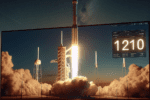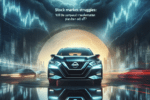New York, US – A recent study conducted by researchers at Weill Cornell Medicine suggests that gene activity is more disrupted in male astronauts compared to their female counterparts during space travel. The study, led by Christopher Mason, examined the immune system responses of astronauts, revealing that men take longer to return to normal gene activity once back on Earth.
The findings, although preliminary due to limited data on female astronauts, highlight the potential resilience of women to the stresses of space and their quicker recovery upon return to Earth. If confirmed, this trend could have significant implications for astronaut recovery programs and crew selection for future space missions.
According to the research published in Nature Communications, the study involved analyzing immune system reactions in two men and two women who participated in the SpaceX Inspiration4 mission in 2021. The results indicated that gene activity was more disrupted in men, particularly affecting proteins important for functions like blood clotting.
The study’s lead researcher, Christopher Mason, suggested that the ability of women to manage the physiological demands of pregnancy might contribute to their resilience in space. The study underscores the importance of further research to validate these initial findings and potentially influence crew selection for high-altitude, lunar, and deep space missions.
In a series of studies published on the same day, data from the Inspiration4 mission and other space missions were analyzed to create a space biology database aimed at reducing health risks for future astronauts traveling to the moon, lunar orbit, and even Mars. However, another study raised concerns about the safety of long, deep space missions like a journey to Mars.
Researchers at University College London discovered that exposure to galactic cosmic rays could lead to permanent kidney damage, with astronauts possibly requiring dialysis upon their return if not adequately protected. The study emphasized the challenges posed by cosmic radiation, as shielding may inadvertently worsen the effects by producing secondary radiation harmful to astronauts.
The potential risks associated with space travel, particularly long missions like those to Mars, highlight the need for further research and innovative solutions to ensure the safety and well-being of astronauts. These findings underscore the complexities and challenges of venturing into deep space and the importance of ongoing scientific exploration in preparing for future space missions.










